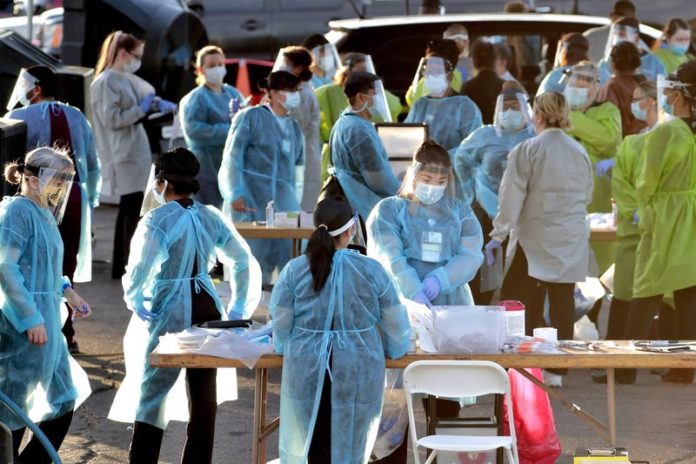
Arizona health officials on Wednesday reported 496 more confirmed COVID-19 cases and 30 more deaths, increasing the statewide totals to 206,541 cases and 5,251 deaths.
Arizona was a national virus hotspot in June and July, but new cases and deaths have decreased since then. COVID-19-related hospital metrics reported by the state Department of Health Services also have dropped, though the declines have slowed recently.
According to Johns Hopkins University data analyzed by The Associated Press, seven-day rolling averages of daily new confirmed infection cases and daily deaths continue to decline in Arizona.
The average number of daily new cases dropped from 622 daily Aug. 25 to 529 on Tuesday while the average number of daily deaths declined from 38 on Aug. 25 to 30 on Tuesday.
The number of infections is thought to be far higher because many people have not been tested, and studies suggest people can be infected with the virus without feeling sick.
For most people, the coronavirus causes mild or moderate symptoms, such as fever and cough that clear up in two to three weeks. For some, especially older adults and people with existing health problems, it can cause more severe illness, including pneumonia and death.
In other developments, the University of Arizona is considering limiting students’ movements in some housing because of rising COVID-19 cases.
A frustrated University President Robert Robbins said some students continue attending large parties.
He also said he is alarmed that nearly half of the students in at least three fraternity or sorority houses have tested positive. Between 20 to 35 students occupy each of those houses, which were not named for privacy reasons.
“These numbers just show to me that we’re not doing a good job of controlling the transmission of this virus,” Robbins said.
The University of Arizona will continue testing wastewater in each dormitory three times a week to help it identify infection cases, Robbins added. The school may use the method for some off-campus sites.
Republished with the permission of the Associated Press.














